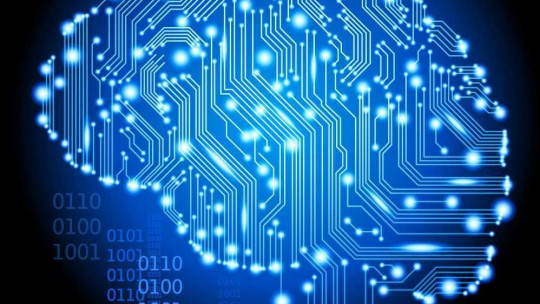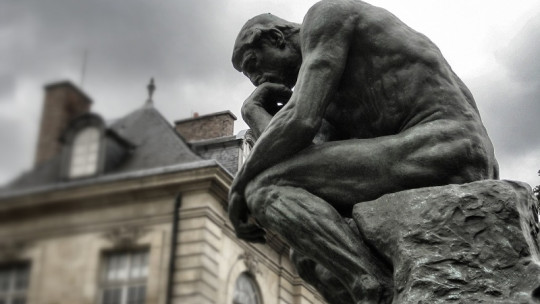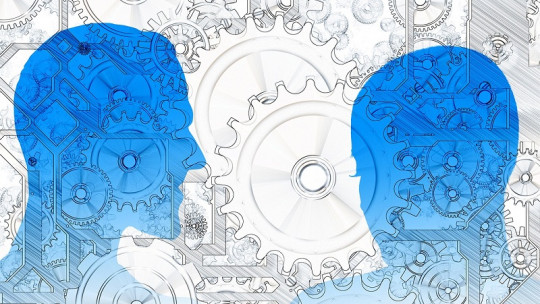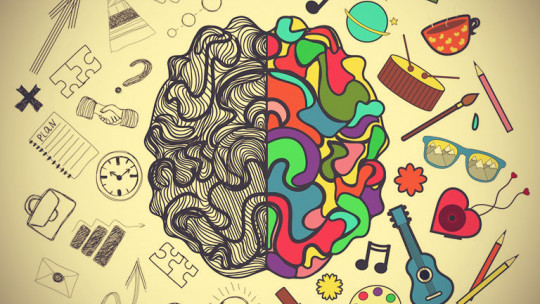Many of the discussions that take place within psychology are not, technically, psychological discussions, but rather philosophical. Philosophy provides an epistemological and conceptual framework that we use to interpret and produce data, and that previous phase is not a scientific task; rather, it has to do with defending a point of view and arguing why it is better than other philosophical positions.
This is something that happens in all sciences, because all of them are based on philosophical foundations that have normally been discussed for decades. However, something happens in psychology that does not usually happen with hard sciences such as physics: the scientific debate and that of ideas are very mixed and can easily become confused. This occurs, in part, because of the popularity of a philosophical position known as reductionism Let’s see what it is and what implications and risks it can have in the field of psychology.
What is reductionism?
Reductionism is a framework for interpreting reality through which everything that happens in a system (whatever it is, from a company to a human brain) can be understood by individually studying its “pieces”, its components.
Furthermore, from reductionism it is assumed that the connection between those pieces and the properties that those pieces express is less debatable than the relationship between the system as a whole and the properties it has, so the general arises from the individual and never The opposite happens. For example, the characteristics of a complex phenomenon, such as the movements of a crowd of ants, arise from the sum of individual behaviors of each of these insects.
In turn, if we study the components of a phenomenon we will come to the conclusion that this phenomenon can only change in a certain and limited number of ways, since Its components determine the paths of change through which the whole can pass. Ants will not be able to survive without a queen ant, because their genes tie them to living in a colony focused entirely on reproduction.
Reductionism in Psychology
The reductionist perspective can be very useful, and yet it entails a danger to take into account: it can generate circular explanatory frameworks when trying to understand what happens in a complex and changing phenomenon, as we will see. Specific, When reductionism is applied to psychology or neurosciencethis risk is relatively high.
The result of this drawback is that, many times, reductionism is resorted to due to technical and methodological limitations and when interpreting the data obtained through this research, it is “forgotten” that the decision to isolate a problem into its relatively simple parts was a philosophical action, and not objective or scientific action. Let’s look at an example related to cognitive sciences and the study of the brain.
The study of intelligence
Intelligence is a concept that is as interesting and popular as it is controversial, since there is no very clear and exhaustive definition of what it is or what it is not. In fact, the most abstract definitions of this characteristic already suggest why it is difficult to limit it to a definition: it is about the ability to adapt quickly and effectively to new problems. Since “new problems” is a necessarily open concept (you cannot know in advance what a new problem is for someone), intelligence can only be understood as a complex phenomenon whose backstage is constantly changing, just as all our abilities are. conscious and unconscious mental activities all the time.
How to identify the biological processes on which each person’s intelligence exists? Since it is such a complicated task, many researchers choose to analyze activation patterns of specific parts of the brain and compare the combination of these parts of the nervous system with the scores that each person obtains in an intelligence test. By doing this, it has been discovered that the main biological differences that distinguish more intelligent people from those who are less intelligent are found in the frontal, parietal and anterior cingulate lobes of each cerebral hemisphere.
From a reductionist perspective, this can be interpreted as a sign that these parts of the brain are the main ones involved in the person’s intelligence, which trigger the entire process of reasoning and maintaining information in working memory, etc. The rest of the brain structures may be essential, but in any case they are auxiliary members, they participate by helping the others’ work.
This explanation sounds very natural and convincing which can be taken as an objective fact outside of philosophy, but in reality it is far from explaining the neurobiological basis of intelligence.
What if this mental capacity were not the task of parts of the brain working each on their own and “pooling” their work from time to time? What if intelligence were based on the coordinated work in real time of millions of neurons spread throughout the brain, in turn maintaining interactions with other nerve cells and with the substances that reach them through blood vessels? If this explanation well described the logic of biology behind intelligence, would previous research have detected it?
No; Because of reductionism, a description of the effects that a global system has on the parts would have been confused of the brain with the causes of what is seen in that global system. In the same way that it is not the sad or expressionless face that causes depression in people with this type of disorder.
Conclusion
Psychology is a field of research that aims to explain many things: from the behavior of buyers to the most effective learning methods, through the way in which drug use affects social relationships and an infinite number of topics that do not. They have too much to do with these. Basically, any part of reality in which there is a living being learning certain habits and behaviors (voluntarily or involuntarily), psychology has a place.
But the psychology does not claim to explain everything in the sense in which physics could explain everything , since all types of very complex phenomena are involved in human actions, both genetic and historical, cultural and contextual. That is why reductionism should only be taken as a tool, and not as a philosophy that allows generating simple explanations for facts that are not simple.









